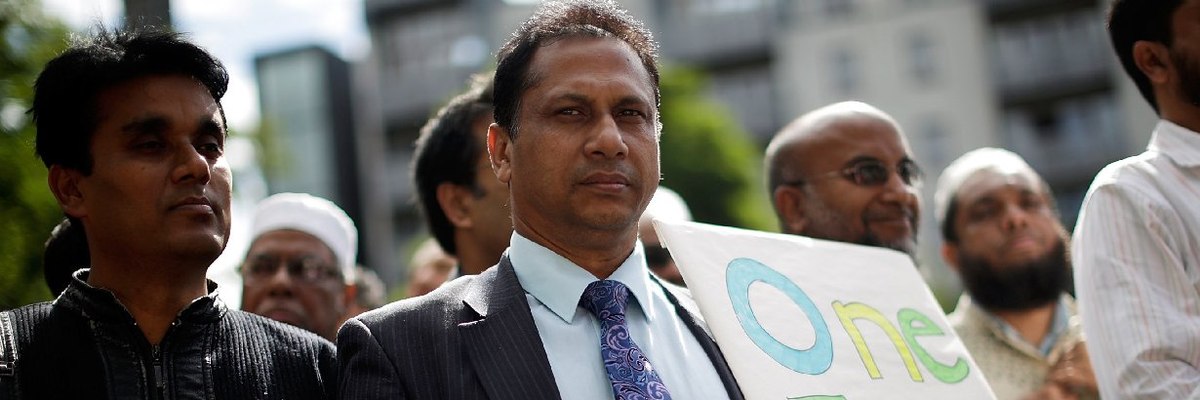Anthony Wells, YouGov's director of political and social research, sets out the challenges the polling industry faces when it comes to surveying BAME Britons
Polling ethnic minorities in Britain is not easy. Around 12% of the British adult population is from an ethnic minority, but traditional random methods of polling struggle to find them.
At a simplistic level, if you were to ring random telephone numbers or knock on random doors, only one in eight of the people you managed to reach would be from an ethnic minority. The cost of such surveys is therefore often prohibitive and there has been a consequential lack of reliable data on the opinions of BAME Britons. For example, it is now ten years (and four general elections!) since the last Ethnic Minority British Election Study.
In theory online sampling should hold a solution to that. Using an online panel makes it easier to survey smaller demographic groups that are spread across the country. A panel-based pollster can ask their panellists about their ethnicity, and then use the data to recruit a bespoke sample of only ethnic minority respondents. It should be easy, but in practice it is quite hard. Or at least, it is hard to do it well. Anyone can interview the first 1,000 qualifying people they come across, it is more challenging to ensure those people are actually representative.
To give an example, at the time of the 2015 general election there was a lot of interest in the question of whether the Conservatives had made a significant breakthrough with ethnic minority voters, and some survey evidence suggested they had. When YouGov looked at similar data (working with Maria Sobolewska and Rob Ford of Manchester University) we found it was more likely that it was just a case of those online samples of ethnic minority Britons being too Conservative, and that comparing like-with-like the Conservative Party appeared to have made little progress. The point is that faulty data can lead to faulty conclusions - it is important to get it right, and simplistic solutions risk providing misleading data.
At a time when issues around racism in society are prominent, it is nevertheless crucial that we reflect the views of all parts of British society, including people from ethnic minorities. Hence this week we have published a new YouGov poll of ethnicity minority Britons (an exercise we hope to repeat more often in the future).
As with any survey, we started by ensuring we had the correct proportions of people in terms of age and gender, from the right regions and with the right level of education (Britain's ethnic minorities tend to be significantly younger, more likely to live in London, and more likely to have post-secondary education than white Britons). Targets for all of these were drawn from the Annual Population Survey.
There are also measures that are more specific to a survey of ethnic minority Britons. We targeted our sample to get the correct proportions of people from a Black, Indian, Pakistani and Bangladeshi, Mixed and other ethnic minority backgrounds. We also quota'ed and weighted by whether people were first generation immigrants or were born here in the UK. Finally, we weighted by how diverse an area people lived in, based on census output areas, so we had the correct proportions of ethnic minority people who lived in highly diverse areas and the correct proportion who lived in areas that were predominantly white.
All these things are important in getting a genuinely representative picture of BAME Britain, especially on issues like racism. Black people may have different views of the Black Lives Matter movement to people of an Asian or mixed background. People who were born here may have very different perceptions and experiences of racism from people who moved here later in life. People who live in an area with a highly diverse population may feel very differently to those who see only white faces in their local community.
There are some caveats. For example, YouGov's British panel is predominantly used to carry out surveys in the English language, meaning we are unlikely to have many panellists who don't speak English well. In the 2011 census, 16% of people from a Bangladeshi background said they spoke English poorly or not at all. However, no sampling technique is perfect and this is an attempt to produce the most representative sample of British BAME people we can from the tools currently available to us.
The full results are presented here and were written about here.
Since the 2015 polling error we have been working hard on recruiting more people to the YouGov panel who are not interested in politics or have lower levels of educational achievement. Alongside that one of our priorities in the years ahead is to recruit more people from ethnic minorities to our panel, to make it easier for us to do more polling of ethnic minority Britons in the future, and ensure that we able to measure and report the opinions of all parts of British society.









